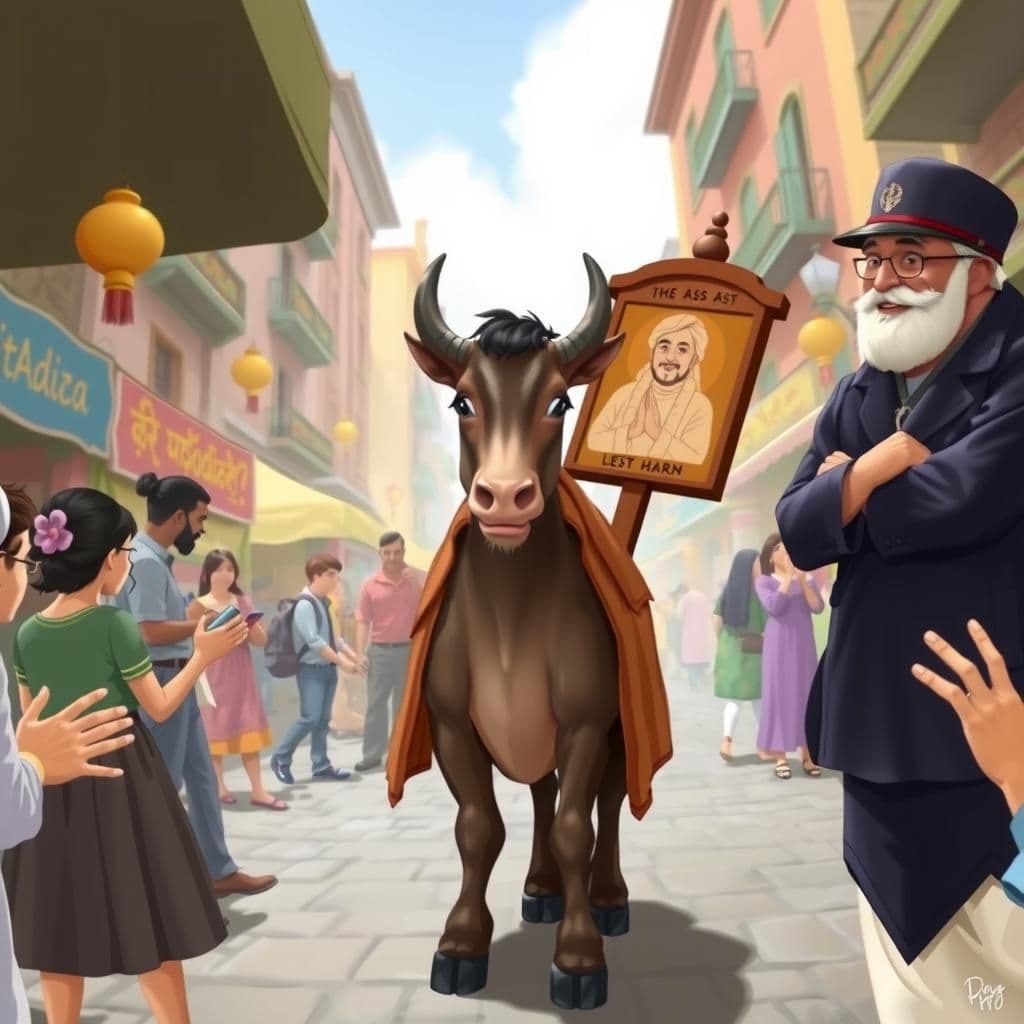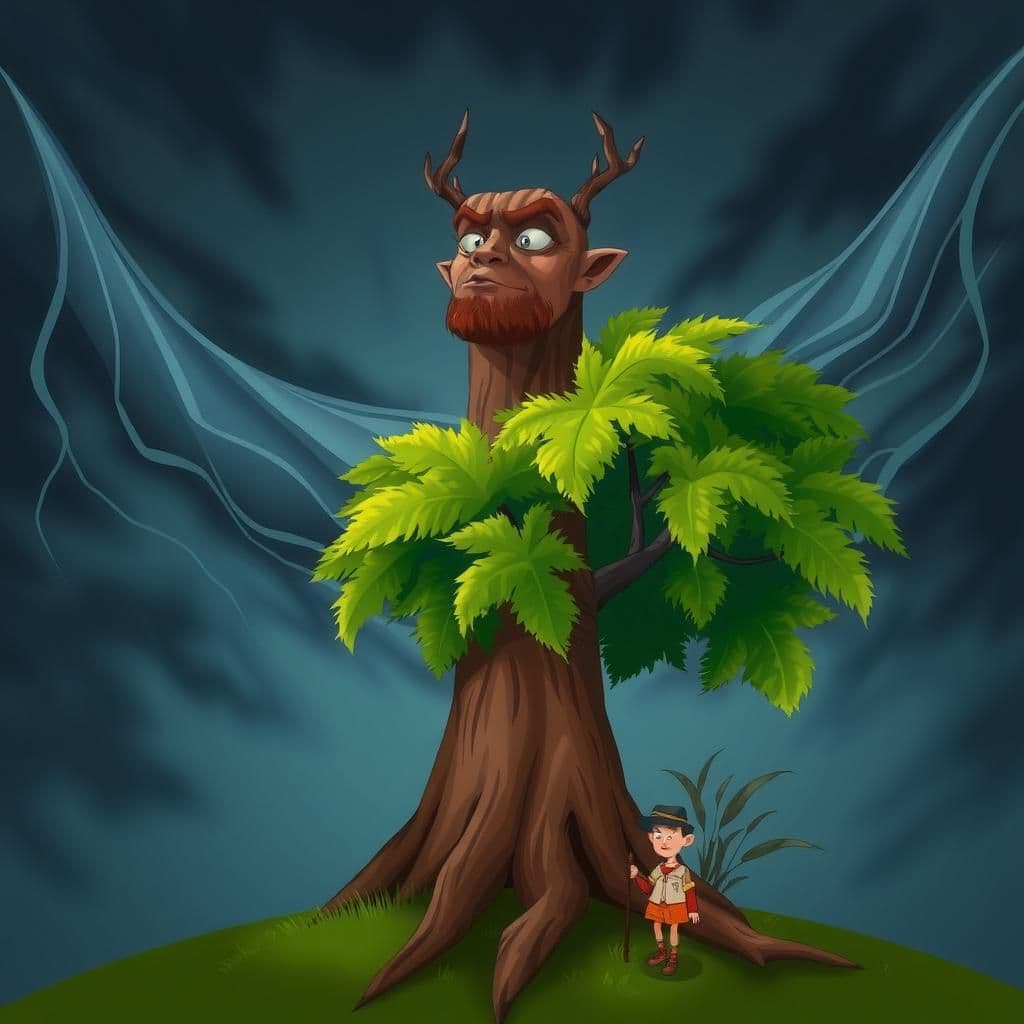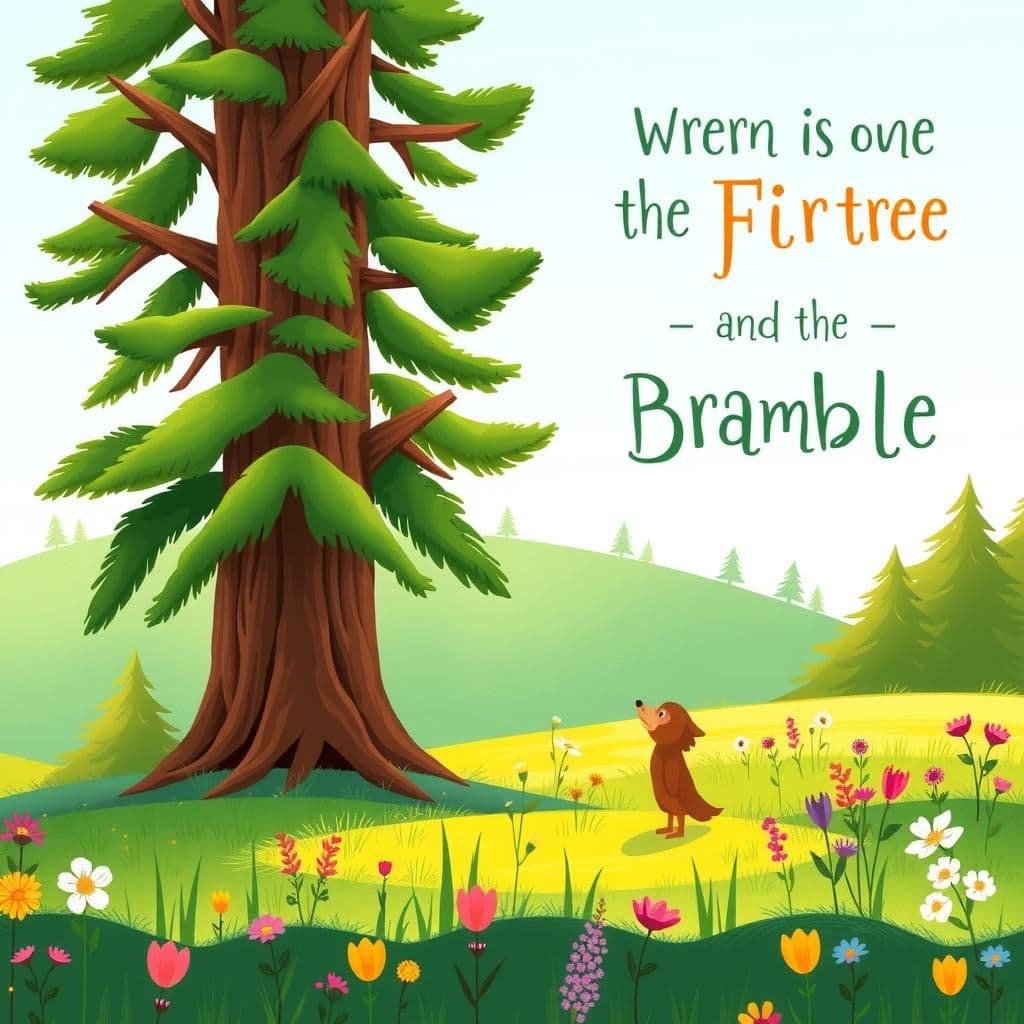The Ass Carrying the Image
In this life-changing story with a moral, an ass, proud and stubborn, mistakenly believes the crowd is admiring him as they bow before a wooden image he carries. Refusing to move until his driver chastises him, the tale highlights the folly of taking credit for the achievements and reverence due to others, making it a compelling quick read story with moral lessons. This creative moral story illustrates the importance of humility and recognizing the true sources of admiration.

Reveal Moral
"Do not mistake the admiration for others as recognition of your own worth."
You May Also Like

The Tree and the Reed
In "The Tree and the Reed," a proud Tree mocks a humble Reed for its perceived lack of ambition and strength, highlighting the importance of boasting versus modesty. However, when a hurricane strikes, the Tree is uprooted and destroyed, while the adaptable Reed survives by bending with the wind, illustrating valuable lessons from moral stories about the strength found in humility and flexibility. This culturally significant tale serves as a reminder that obscurity can often bring safety, making it a perfect moral story for kids and personal growth.

The Flea and the Wrestler
In "The Flea and the Wrestler," a popular moral story, a Wrestler, bitten by a Flea, calls upon Hercules for help. Frustrated by his inability to defeat such a minor foe, he questions how he can expect assistance against larger challenges, highlighting the lessons learned from stories about facing one's fears, no matter how small. This engaging moral tale serves as a reminder that overcoming even the smallest obstacles is essential for tackling greater adversities.

The Fir Tree and the Bramble
In "The Fir Tree and the Bramble," a Fir Tree boasts about its utility in construction, while the Bramble warns it of the dangers of being cut down. This timeless moral story teaches that a simple, carefree life is preferable to one burdened by the weight of wealth and usefulness, making it a valuable addition to childhood stories with moral lessons and short stories for students with moral insights.